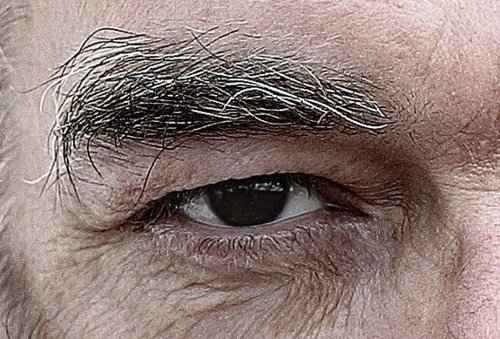Wearing contact lenses is often a great solution for vision correction, but nothing is more frustrating than when your contacts become blurry. Blurry contact lenses can cause discomfort, hinder your vision, and impact your daily routine. If you’re wondering, “Why are my contacts blurry?” you aren’t alone. Many people experience this issue for a variety of reasons, and understanding these causes is the first step to solving the problem.
Common Reasons for Blurry Contact Lenses
1. Dry Eyes: A Leading Cause
One of the most common reasons why contact lenses get blurry is due to dry eyes. When your eyes don’t produce enough moisture, your lenses may feel uncomfortable and your vision might be compromised.
Tips for Managing Dry Eyes:
- Use rewetting drops specifically designed for contact lens wearers. Brands like Refresh or Blink are often recommended.
- Stay hydrated throughout the day, as dehydration can contribute to dryness.
- Blink more frequently, especially when staring at screens. Laura, a graphic designer, found that taking breaks every 20 minutes helped her avoid blurry contacts while working long hours.
2. Improper Lens Cleaning
Inadequate cleaning of your lenses can lead to protein buildup, which is another reason contacts become blurry. Protein deposits can accumulate on the surface of the lens, making your vision appear foggy or unclear.
Cleaning Routine Checklist:
| Step | Description |
|---|---|
| Wash Hands | Always wash your hands before touching lenses. |
| Rinse Lenses | Use the correct contact lens solution; never water. |
| Replace Case | Replace the lens case every three months. |
Ensure that you use fresh, multipurpose cleaning solutions daily. Older solutions may not effectively clean your lenses, leading to discomfort.
3. Incorrect Lens Fit
If your contact lenses are not properly fitted to your eyes, they may move around too much, resulting in blurred vision. It is crucial to get your lenses fitted by an eye care professional. For instance, Mike, a student, had to switch his contact lenses after realizing his vision was compromised by an improper fit.
Less Common Reasons for Blurry Contacts

4. Lens Expiry or Wear Beyond Schedule
Contacts are designed for a specific period of use—daily, biweekly, or monthly. Wearing them beyond their recommended duration can lead to blurry vision. Remember Emma, who tried to stretch her monthly lenses to six weeks? She ended up with uncomfortable, blurry eyes and eventually had to seek help.
5. Allergies or Environmental Factors
Environmental factors, such as pollen, dust, or smoke, can stick to contact lenses and make your vision blurry. If you have allergies, it is wise to discuss solutions with your eye doctor, like switching to daily disposable lenses or using anti-allergy eye drops that are contact-safe.
How to Fix Blurry Contact Lenses
If you find yourself experiencing blurred vision with your contacts, there are several steps you can take:
- Check the Orientation: Make sure your contact lenses aren’t inside-out. Often, lenses that are flipped will feel uncomfortable and blurry.
- Replace Lenses Regularly: Adhering to the schedule of replacement can prevent protein buildup.
- Consult Your Eye Doctor: If the blurriness persists despite your best efforts, consult an eye care professional to assess if your prescription needs adjustment or if there are other underlying health concerns.
Expert Quotes on Blurry Contacts
- “Dry eyes are the most common reason for blurry contact lenses. It’s essential to keep your eyes lubricated,” says Dr. Caroline Smith, optometrist at Vision Center.
- “Always ensure you are properly cleaning and storing your contact lenses, as improper care can lead to complications,” warns Dr. Mark Johnson, author of Healthy Vision with Contacts.
- “Environmental allergens can impact the quality of vision with contact lenses, and sometimes switching to glasses temporarily can help,” advises Dr. Susan Green, allergy specialist.
How Can You Prevent Blurry Contact Lenses?
Follow a Proper Hygiene Routine
Good lens hygiene prevents blurriness and keeps your eyes healthy. Always follow the cleaning instructions provided by your eye doctor or lens manufacturer. Avoid rinsing lenses with water, as tap water is not sterile and can contain harmful microorganisms.
Blink Often to Keep Lenses Moist
Blinking helps spread moisture across your lenses, keeping them from drying out. People who spend a lot of time staring at screens—like software engineer Alex—often forget to blink as frequently as needed, which contributes to dry, blurry lenses.
Avoid Sleeping in Contact Lenses
Sleeping in lenses that aren’t designed for overnight wear is a common mistake that can lead to dryness, protein buildup, and discomfort. Hannah, a nurse, found her contact lenses blurry after taking short naps during her shifts, which she corrected by switching to extended-wear lenses approved for overnight use.
When to See an Eye Doctor
Blurry contacts can be an indication of a more serious issue. If you’ve tried all the suggested remedies and are still experiencing blurred vision, it’s best to see an optometrist or ophthalmologist for further evaluation. Conditions like astigmatism, presbyopia, or even eye infections can require professional diagnosis and treatment.
Summary
Blurry contact lenses can be annoying, but understanding the causes and solutions can help you enjoy clear vision again. Whether the problem is dry eyes, protein deposits, improper lens fit, or allergies, there are steps you can take to address it. Remember to always consult with your eye care provider when in doubt—clear, comfortable vision is worth it!



